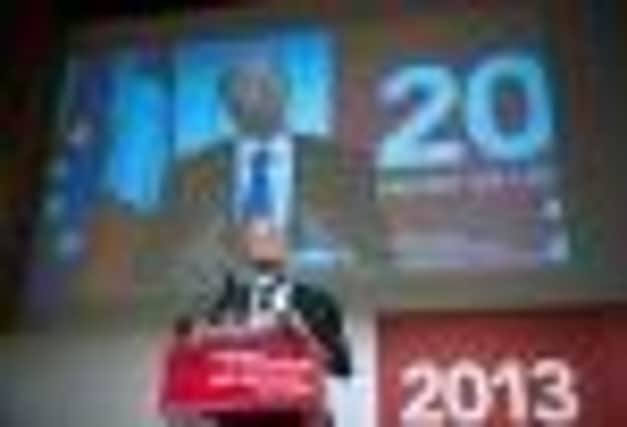France to roll out 75% top tax rate for in its ‘fighting budget’


Critics said it lacked fundamental reforms that could jump-start economic growth.
President Francois Hollande’s cabinet defended the spending plan for next year, saying it would win the “battle” against joblessness.
Advertisement
Hide AdAdvertisement
Hide AdLike many European countries, France must tread a fine line between cutting the debts that dragged them into the financial crisis and investing in the economy to spur growth.
The French economy, the second largest among the 17 countries that use the euro, has not grown for three quarters in a row, the national statistics agency confirmed yesterday.
Unemployment has been rising for more than a year and stands at 10.2 per cent.
However, some economists warn that things could become much worse in France if the government does not slash state spending and reform stringent labour laws.
Finance minister Pierre Moscovici said: “This is a serious budget, it’s a leftist budget and it’s a fighting budget.”
As Mr Hollande promised that he would slash the country’s deficit to 3 per cent next year – a limit required by European rules – the government must find €30 billion (£24bn) in savings.
One-third will come in spending cuts, with the rest in new or higher taxes on the wealthy and big companies, including a 75 per cent tax on incomes over €1m.
Among the other measures included are a new income tax level at 45 per cent for those making more than €150,000, an increase of capital gains taxes to bring them more in line with how salaries are taxed, and a cap on certain deductions for large companies on their income taxes.
Advertisement
Hide AdAdvertisement
Hide AdThe 75 per cent tax will last for two years and has always been billed as a symbolic measure since it will bring in very little revenue.
Several businessmen and politicians in the opposition have said that is exactly what is wrong with the 2013 budget – it sends the message that France does not like the rich and is not open for business.
Guillaume Carou, chief executive of Didaxis and president of the Club of Entrepreneurs, which represents 15,000 small businesses, said: “France is sick from a model that isn’t viable. But [the government has] chosen to keep it, that’s what the 2013 budget reveals.”
Prime minister Jean-Marc Ayrault rejected that characterisation, however, insisting that the budget would win the battle against unemployment.
“It’s a budget that aims to inspire confidence and to break the debt spiral that keeps growing and growing,” he said after the budget was presented to the cabinet.
The budget is built around an expectation of 0.8 per cent growth for next year. If growth misses the projections, more cuts could be needed later.
Mr Moscovici conceded that most economists predict the French economy will grow just 0.5 per cent, but said that if the European debt crisis stabilises, France would meet its targets.
Early reactions to the budget were sceptical. Philippe Waechter, at Natixis Asset Management, said: “The ambitions that were flagged are very audacious. I struggle to see how we’ll find the growth needed in 2013 and afterwards.”